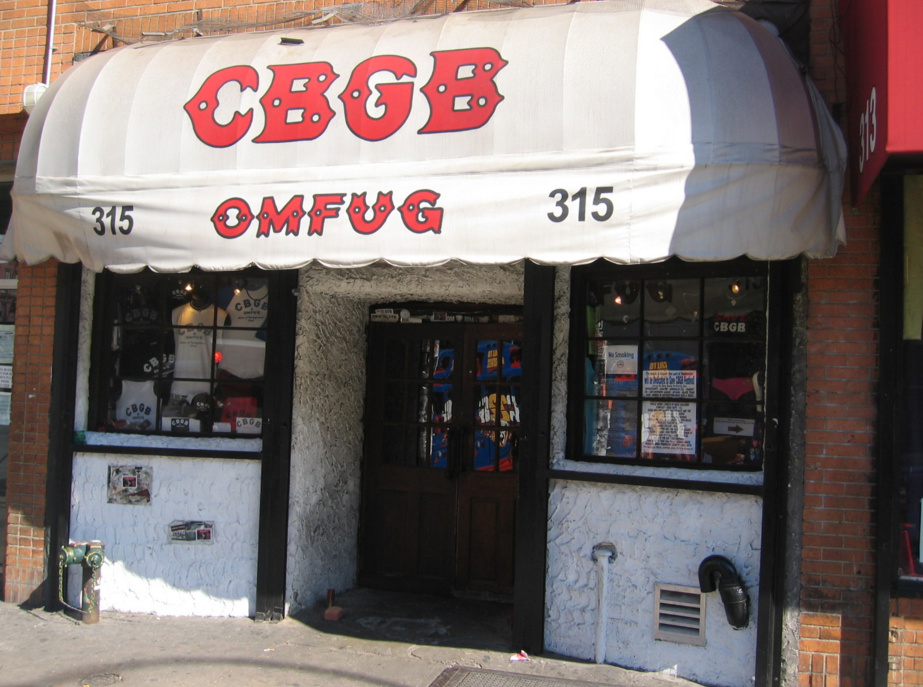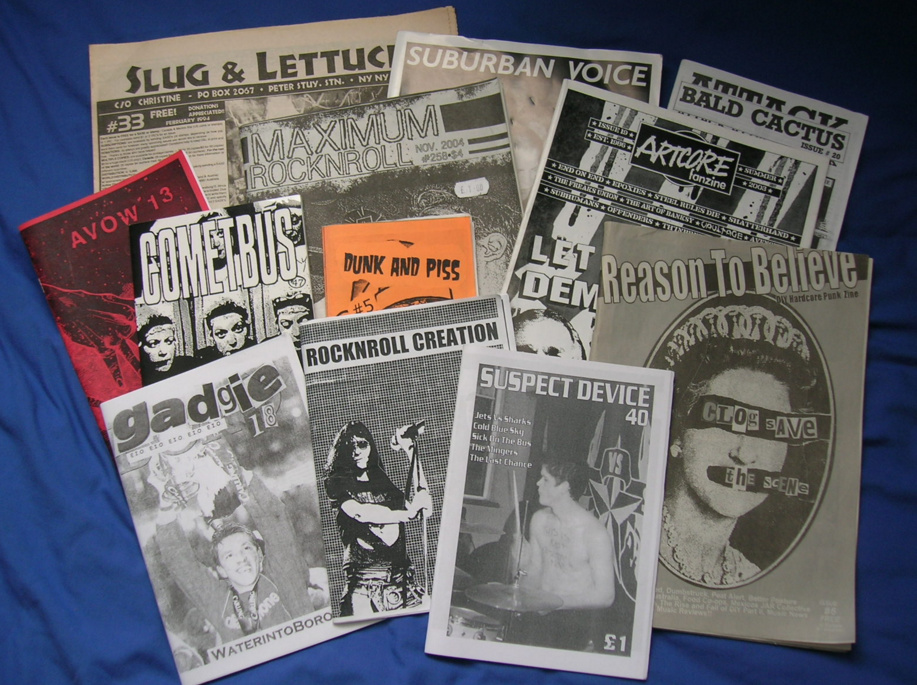Fast, furious, and seething with vitriol, Britain’s punk scene started in the early 1970s as an open mouth—pouring with enough anger and anarchy to give your gramdma piles. Bands like the Sex Pistols, The Damned, The Slits, Stiff Little Fingers, Sham 69, and Crass burst out from the tail-end of 1960s Keep Calm and Carry On Britain with urgency, bits of blood, and basement gigs in a flurry of unaffected, pissed off youth. It feels like a platitude to say, but the scene at the time was more than the music; it was a genuine cultural movement, where having something to say meant a hell of a lot more than “getting signed.” Just ask your dad, or the crusty dude in a Jack Daniels t-shirt working the bar at your local venue.
The remnants of that punk scene are everywhere: in today’s DIY hip-hop movements like Odd Future, the clothing rails at fashion week, the political nature of 2016’s grime scene. Yet the punk scene itself, the original one that based itself around guitars, latex, and genuine anarchy, has waned into a shrub breathing on branded life support. Maybe it’s the Sex Pistols credit cards that came out last summer, or legendary punk venue CBGB announcing it would reopen, serving stacks of pancakes in Newark airport. Maybe it happened when Green Day’s Dookie sold 20 million copies and paved the way for further pop-punk album from the likes of Blink-182 and Fall Out Boy. Or maybe it’s all back to Sniffin’ Glue, and 1976, when Mark Perry watched his favorite band The Clash “put the man in control” and sign a massive record deal with CBS.
Videos by VICE
If anyone should know, it feels like it should be him. After all, Perry created the first and most prolific punk fanzine in UK music history. Inspired by the Ramones track “Now I Wanna Sniff Some Glue,” Perry’s don’t-give-a-shit, sellotape masterpiece broke onto the scene with a riotous bang, circulating around 15,000 copies at its peak. Sniffin’ Glue personified the punk scene, giving the movement a voice. It commanded attention, and reached meteoric cult status. It was, as NME called it at the time, “the nastiest, healthiest and funniest piece of press in the history of rock’n’roll habits”
Then in 1977, after 12 hell-raising issues, it went out with the same immediacy from which it began, ceasing to exist just because Perry feared it would soon become absorbed into the mainstream press. As its final hurrah, Sniffin’ Glue’s concluding issue was accompanied by a flexi disc insert of his debut track “Love Lies Limp” as lead singer with the band Alternative TV, who went on to release a further ten albums over the next four decades.
Seeing as Mark Perry has always opened his mouth to talk about punk, and the music world he was born into has changed massively, there’s never seemed like a better time to get him to re-open that mouth in a reassessment of today’s scene. Over the course of our chat we spoke about a bunch of joyful-and-not-so-joyful things, starting with CBGB…

(Image of CBGB via)
Noisey: You packed out the place with your band, ATV. So I’m guessing you have some strong opinions on CBGB reopening as a diner in Newark airport.
Mark: It’s very obvious that sort of thing would happen. But I think people put too much on it, they sort of build it all up as though it’s fucking Beethoven, like CBGB is the fucking Notre Dame Cathedral. It’s not, it’s just a club. CBGB to me started going downhill when they started making more money, selling t-shirts and mugs and fucking mouse mats, rather than putting on bands. That was the beginning of the end. Thank god The Roxy [a nightclub known for hosting the British punk scene in its infancy] didn’t last, because the same thing would be happening there. I don’t know why people are getting all worked up about it. It’s like when John Lydon did the butter adverts, and people say: “oh [this advert is] the death of punk!” Why?! People are ridiculous. What are you talking about – the “death of punk”? Punk died to me the day the Clash signed with CBS, I didn’t have to wait 40 years to know that.
I see we’re off to a roaring start already…
Y’know, people are trying to grab on to all these iconic symbols from their youth. Look at David Bowie’s death, you have people trying to grab on, painting their faces with fucking lightning bolts. You got people on Facebook saying, “Oh David Bowie died, a part of me is missing.” Yeah, if your fucking dad dies or your mother or something, but a fucking popstar? That’s bullshit! People say you mustn’t knock that and you have to respect that, it’s rubbish. Someone played a tribute to David Bowie and they played “Life on Mars” on a fucking cathedral organ, in a cathedral somewhere… and that is a “TRIBUTE” to David Bowie! What a load of rubbish.
It’s certainly not at the Newark Airport branch of CBGB, but is there any place where the “punk spirit” is still alive?
To me, the spirit of punk only really came from the spirit of rock music. And what does that even mean then, when a good part of rock music is only about selling records?
You tell me.
You know, funny enough, the other week someone who was probably just as influential in the rock scene as Bowie died, [The Bee Gees and Cream manager] Robert Stigwood. He’s interesting because, we talk about the influence of people like Bowie and Johnny Rotten and The Clash and all that, but people like him—and Peter Grant, Led Zeppelin’s manager—they ruled the world. They actually opened their wallets and paid for the stuff. They’re the ones that took rock music out of places like the Marquee club and into stadiums; they put together The Creams, and later on produced films like Saturday Night Fever and all that. They’re the guys that took rock music to the masses, and it’s because of them that we now have this massive, monotonous money-making machine. You can’t reverse all that. You can’t go back to David Bowie playing the Roundhouse or David Bowie playing some shithole club, you know what I mean? Everything moved on, and everything’s changed. Whatever’s happening now, whether it’s in the spirit of rock or in the spirit of punk, it’s happening in a different environment than when it started.
Are you saying that punk, as you knew it, can never exist again?
I get irritated with that. Not with you, but generally with people who are like… you know, they’re earnest about looking for whether punk’s still relevant. To me punk is, and was the “punk scene,” but for a lot of people out there, punk will mean fucking Green Day.
Whether it’s your Green Days or your Slaves, are these new bands keeping punk alive?
I don’t think it matters anymore. People get mixed up with labels and punk. You’ll get people labeled as punk musicians who play slightly aggressive music and wear leather jackets, and bullet belts. To me, they’re just a rock band. For me punk ended in 1977. That’s not to say there’s not talent, and that there’s not a scene happening somewhere, but you can’t compare it.
Does counter culture still exist then, do you think?
I’ve got to say no, really. It’s impossible to do anything now without some kind of sponsorship or nod, so how can you be underground anymore? I’m even pissed off with shit like [punk rock festival] Rebellion. They used to bang on and on about being underground and I’ve said to [the organizer], “How can you be?” You’re sponsored by fucking Doc Martin for Christ’s sake! And he’d say “yeah, but it’s Doc Marten.” I don’t care who it is! It’s so hard. How do you get away with it when it’s like that? How do you do stuff that’s pure, that’s underground, or counter culture, that’s off the streets or DIY anymore. There is no counter culture when it’s like that.
What was it like in the past?
In the old days you had the establishment, and you had the rest. If you were part of the rest, you could be cool and you could still feel like you were like out there, playing gigs, and you were underground. If you were playing Reading Festival you were underground, or if you were in the NME you were still underground, because you weren’t represented by anyone, or sponsored. But you got all these layers now. There’s so much capitalism in music. You’ve still got the establishment that’s right up there, but then you’ve got all these other varying degrees of that, that go almost right down to the bottom now. You’ve got these little gigs that are sponsored by Jagermeister, or that get the nod from Red Stripe. That’s still capitalism. In the underground scenes, or the counter culture scene as such, you didn’t have that before.

A bunch of old punk zines (via)
What about zines now? Do they still have a chance in this era of rampant capitalism?
I don’t know about zines today. I think that what happens and what’s always a problem—and it’s a disappointment really—is when you have too much of something you end up with too many voices, all speaking. What went wrong in the 70s and 80s with zines, is there was too much of it. Where before you could have gone to five, ten, or 20 different zines like Sniffin’ Glue, Ripped & Torn and what have you, all of a sudden you had hundreds of them. I can imagine what happens now in the internet era is even worse. The people that are making the zines, probably have their own blogs. And the people reading those blogs are probably reviewing that blog and writing about them in their own zines. They’re all screwing each other a bit. So I don’t know if there’s a chance zines can have a purpose or survive nowadays. It can’t possibly have the same impact, because it’s not one voice out there anymore. When there’s one or even a couple rebellious voices out there, it’s almost louder, you know?
Shall we end the chat on a positive note? Tell me where you think today’s alternative voices are coming from?
If you’re talking about punk spirit—and something where I’ve thought: wow, this is exciting!—the best band is Savages. They’ve got a real edge to them. You can hear a bit of Sonic Youth in there and a bit of PJ Harvey. They’re brilliant.
There are a lot of really strong female punk bands coming up.
It’s true. For the last few years, even if I go way back, the last few new things I’ve been listening to, all seem to be from female bands or singers. There’s loads of stuff I like, and it seems to always be women doing it. Like I said before: you have Savages, Patti Smith has a new album, even people like Bat for Lashes—their lead singer Natasha Khan is very good. It’s a real time of the female voice. There’s a real freshness to it.
Great! Thanks Mark. A joy to chat.
More
From VICE
-

(Photo by Theo Wargo/Getty Images for The T.J. Martell Foundation) -

Screenshot: Mega Crit -

Axelle/Bauer-Griffin/FilmMagic/Getty Images -

A photograph of the lead suspect in the shooting of UnitedHealthcare CEO Brian Thompson, released by the NYPD / ZUMA Press Wire / Shutterstock
